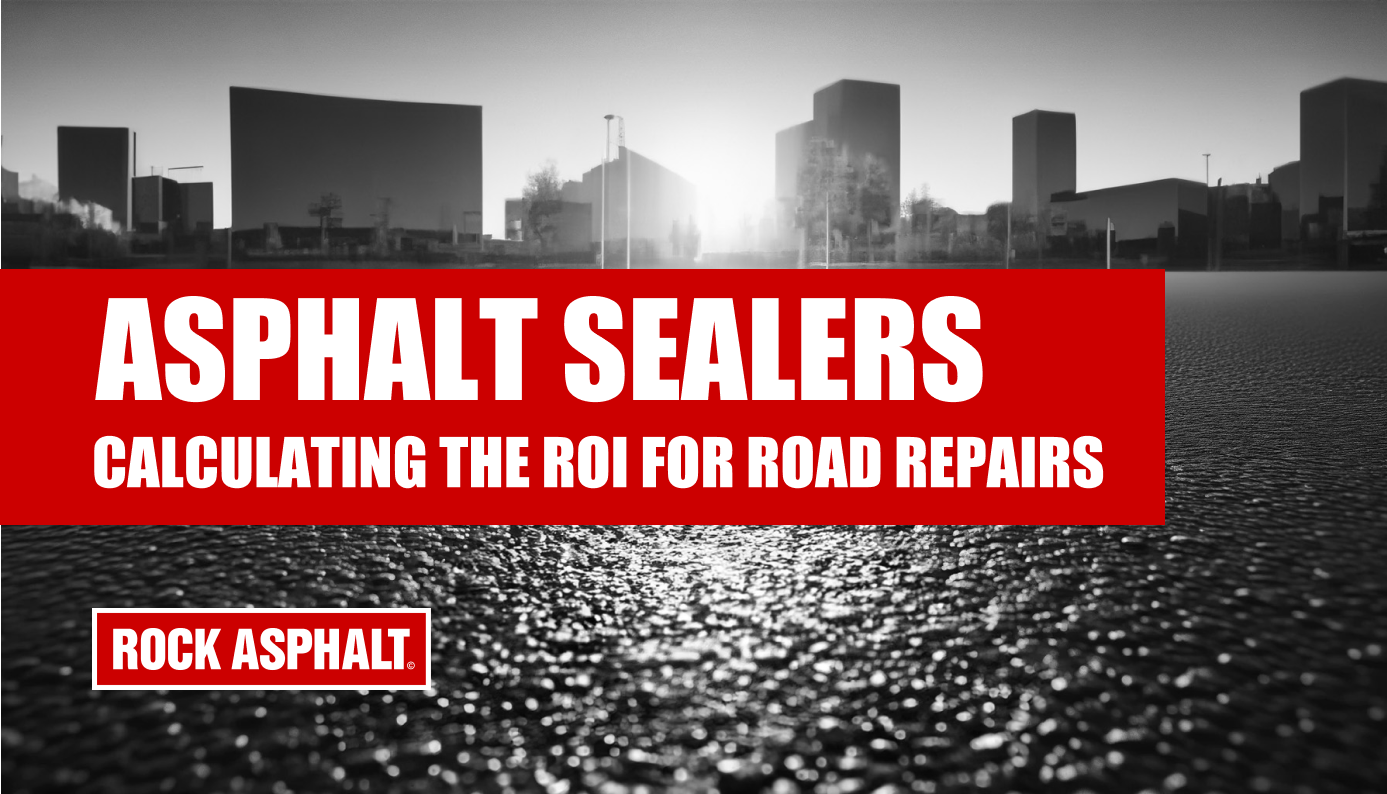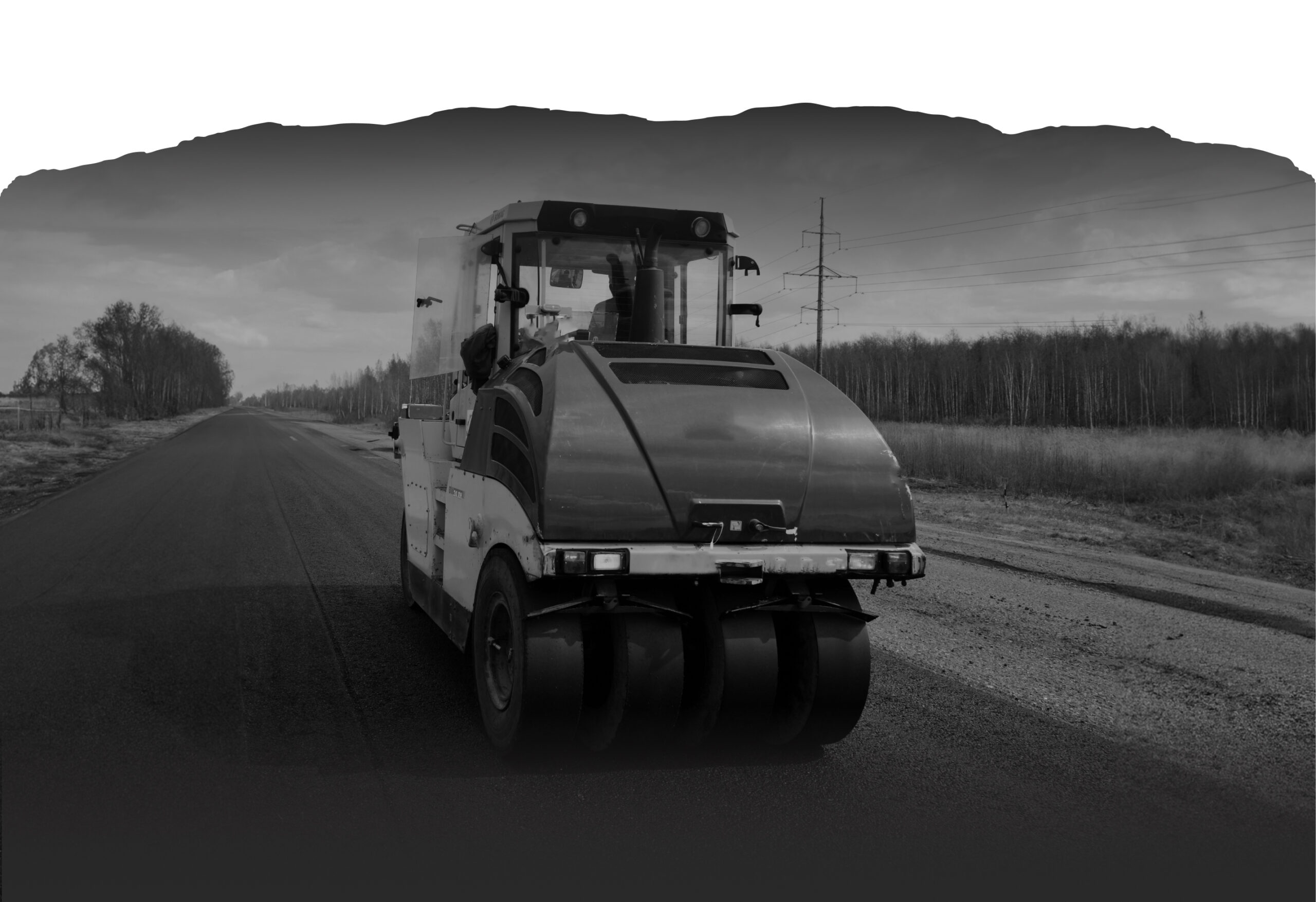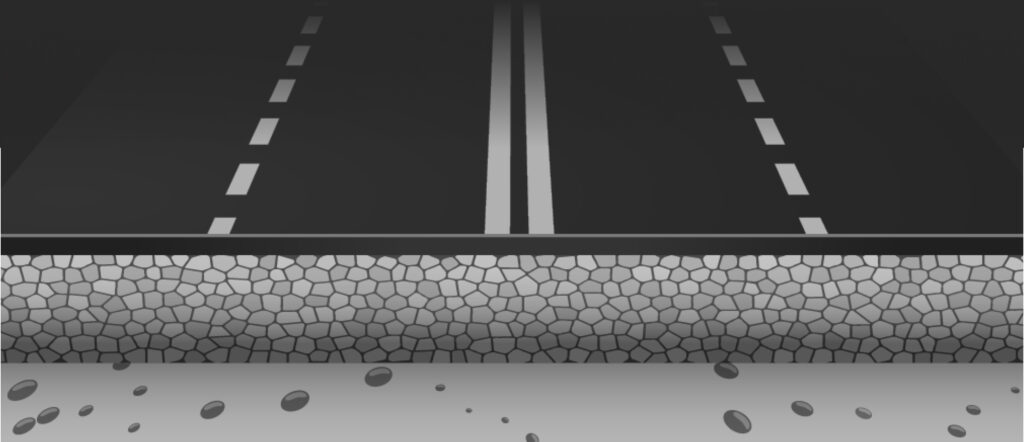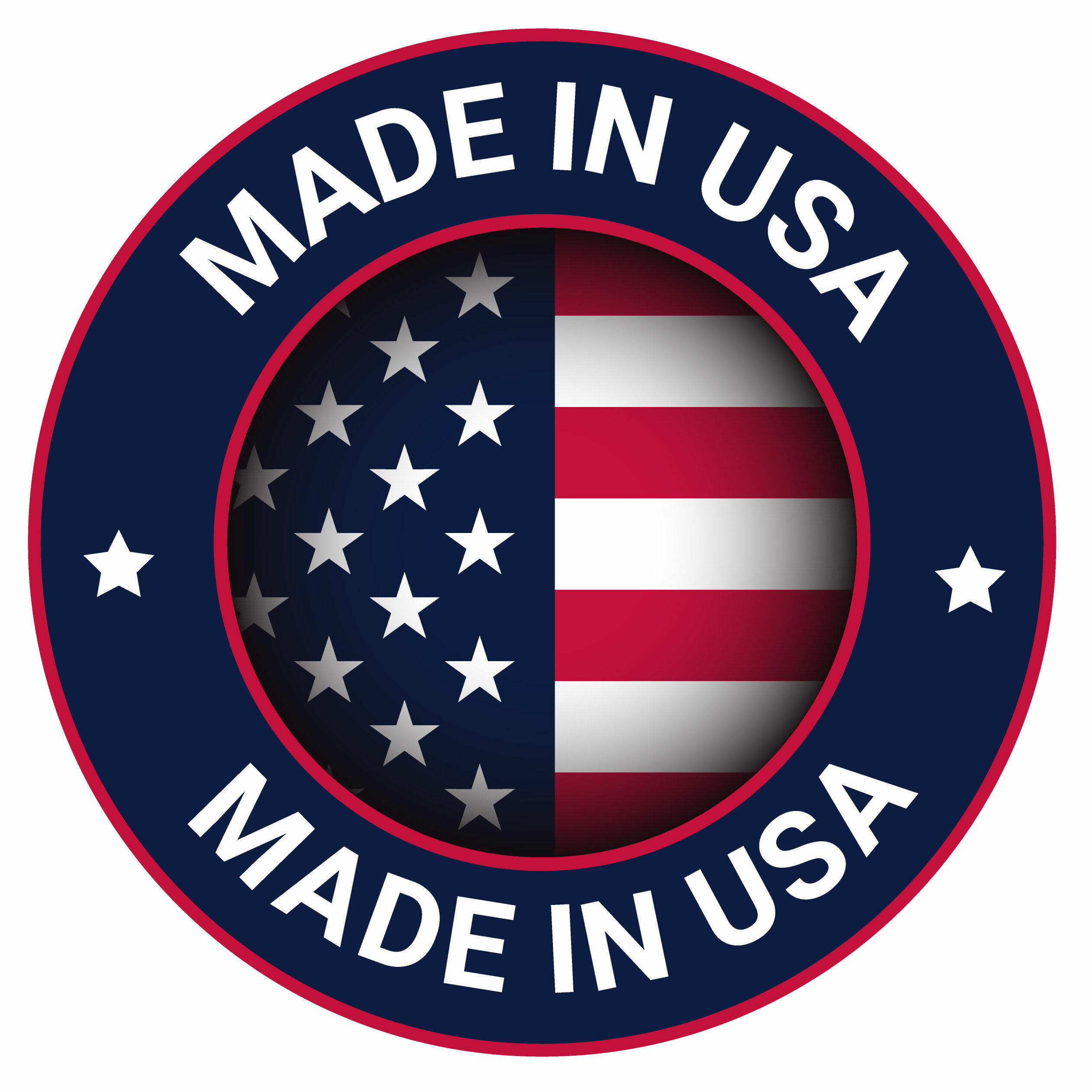Asphalt Sealers: Calculating the ROI for Road Repairs

Asphalt sealers are a specialized coating applied to asphalt to protect and enhance the durability of the pavement. Driveways, parking lots, and roadways all use asphalt sealers as a preventative measure to prolong the life span of asphalt. Sealers come in a variety of options, most composed of a mixture of bitumen and additional additives. These liquid sealants form a protective barrier that shields the pavement from harsh elements such as UV rays, oils, water, and erosion.
Applying asphalt sealer helps prevent cracks, potholes, and maintain a sleek, black appearance. This maintenance practice can save significant costs on repairs and replacement in the long run, making it an indispensable aspect of pavement care and management. In this blog we’ll discuss various financial factors, how to calculate costs, and the potential benefits of applying asphalt sealers to protect your investment in asphalt surfaces.
Factors That Influence ROI For Asphalt Sealers
Upfront Cost VS Long-Term Savings
Depending on the size of the area sealed, the upfront cost of applying asphalt sealers can be expensive. On average, sealers cost between $0.15 and $0.25 per square foot before factoring in labor. However, it’s essential to weigh the long-term savings of sealing asphalt and view the cost as an investment. While sealcoating may seem like an added expense, it serves as a crucial barrier against the elements, such as UV rays, water, and chemicals, which can deteriorate the integrity of pavement over time.
By proactively applying sealers, you can significantly extend the life span of your pavement, reducing the frequency of repairs and replacements that could cost upwards of thousands. Investing in asphalt sealers is a strategic decision that ensures your surfaces remain durable and aesthetically pleasing, and protects against expensive repaving projects.
Maintenance Requirements
To ensure optimal performance of your asphalt surface, regular maintenance is essential. Periodic inspections should be conducted to identify any cracks, potholes, or signs of wear, which should be promptly repaired to prevent further damage. For new asphalt surfaces, applying an asphalt sealer is recommended as soon as the pavement has fully cured and hardened, generally around 90 days.
However, some asphalts can be sealed in as little as 30 days, such as RockAsphalt©. Additionally, reapplication of the sealer is recommended every 2-5 years (depending on the product) to maintain its protective properties and prolong the life of the asphalt. By staying proactive with maintenance and properly applying asphalt sealers, property owners can preserve the integrity and appearance of their asphalt surfaces for years to come.
Climate Considerations
Similar to asphalt, considering the climate is crucial for identifying the best asphalt sealer and achieving long-lasting results. In colder climates, asphalt sealers need to withstand freezing temperatures without becoming brittle or cracking. Sealers with flexible properties can adapt to temperature fluctuations without compromising integrity such as oil-based sealants. Conversely, UV radiation and extreme heat can accelerate the deterioration of asphalt surfaces in warmer climates.
It’s best to choose sealers with UV-resistant additives to prevent premature fading and cracking such as acrylic sealants. Sealers with a high-temperature tolerance are also recommended to protect against intense heat. Choosing an asphalt sealer designed for your specific climate will help provide the best protection against the elements and prolong the longevity of the surface.
Calculating ROI for Asphalt Sealers:
Quantifying Longevity of Your Sealed Pavement
Asphalt sealers play a crucial role in extending the lifespan of road surfaces and driveways, but quantifying their longevity is case by case. Factors such as climate variations, traffic volume, and material composition can greatly affect the longevity of the sealer. On average, asphalt sealers last 2-5 years before reapplication is recommended.
To quantify the longevity of your sealed asphalt surface, it’s best to first identify the best asphalt sealer for your project. For example, water-based asphalt sealers, such as asphalt emulsion, are eco-friendly and offer short curing times, but generally do not last as long as oil-based. Acrylic asphalt sealers boast some of the longest-lasting results but aren’t recommended for high-traffic areas.
Estimating Maintenance Costs
Whether for a small parking lot or a large roadway, understanding the costs for maintaining asphalt sealers is essential for budgeting and long-term planning. Factors such as the size of the area, the condition of the existing pavement, and the type of sealant needed all play a significant role in determining maintenance costs. By carefully considering these factors, property owners and managers can develop accurate estimates that ensure the longevity and functionality of their asphalt surfaces.
Environmental Impact of Asphalt Sealers
Certain asphalt sealers are known to have consequential environmental impacts. Sealers such as coal tar emulsion contain harmful chemicals which can leak into the soil and water, posing a threat to wildlife and ecosystems. Coal tar emulsions are also known to contain carcinogens, banning the material in certain areas.
Additionally, the production and application of asphalt sealers contribute to air pollution and greenhouse gas emissions. As awareness of the environmental impact of asphalt sealers grows, there is a greater push for eco-friendly alternatives such as asphalt emulsion and acrylic asphalt sealers that prioritize sustainability and minimize harm to the environment.
Comparing Performance Metrics of Asphalt Sealers
Selecting the right asphalt sealer is crucial. From the durability and weather resistance to application ease and environmental impact, each sealer brings its own set of attributes to the pavement preservation table.
Coal Tar Emulsion: One of the oldest known asphalt sealers, coal tar emulsion is an inexpensive and durable option. Coal tar sealers became popular because of their easy application and resistance to staining; however, they are known to become brittle and crack over time. Coal tar emulsion is also known to contain hazardous VOCs and carcinogens, banning it in many areas.
Asphalt Emulsion Sealer: This mixture of asphalt and water gained popularity as an alternative to coal tar emulsion due to its eco-friendly and fast-drying nature. Asphalt emulsion sealers are more flexible than coal tar, making them more resistant to cracking over time. However, asphalt emulsion is not known to perform well in colder temperatures due to its strict application range of 55°F-90°F.
Oil-Based Asphalt Sealer: Conversely, oil-based asphalt sealers are a mixture of asphalt and oil. These sealers seep into the pavement to form a flexible bond that resists expanding and cracking due to fluctuations in temperature. Oil-based asphalt sealers also offer better durability and longevity than their water-based counterparts. Because of these properties, oil-based asphalt sealers are popular in colder climates, but do not offer protection from UV rays, making it less than optimal for warmer climates.
Acrylic-Based Asphalt Sealer: Acrylic-based asphalt sealers consist of synthetic polymers that are non-toxic, making them an environmentally safe option. Though one of the most expensive options, acrylic-based asphalt sealers are durable, offer protection from UV rays, and can be customized into different colors, making them popular for sport courts. However, these sealers only form a protective layer on the top of the asphalt surface and are not ideal for heavy trafficked roads.
Ultimately, these performance metrics serve as guidelines for choosing the best asphalt sealer and vary case-by-case. The best asphalt sealer for a tennis court in Florida won’t be ideal for a highly trafficked roadway in Wisconsin and vice-versa.
Benefits of Applying High Quality Asphalt Sealers
Reduced Repair Frequency
Asphalt sealers provide a protective barrier that significantly reduces the frequency of cracks, potholes, and erosion. By shielding the surface layer from damaging elements such as water, UV rays, and automotive fluids, asphalt sealers help reduce the costs of regular asphalt maintenance. This not only saves time and money but also minimizes the disruption caused by maintenance work. Despite the upfront costs of asphalt sealers, opting for this additional maintenance step protects your investment for years to come.
Aesthetic Appeal and Safety Precautions
Asphalt sealers also enhance the aesthetic appeal of asphalt surfaces by providing a fresh, smooth finish that boosts curb appeal. They also make cleaning and maintenance easier, as they prevent oil and gas stains from penetrating the surface, allowing for quick and efficient cleanup. Furthermore, sealers contribute to a safer environment by reducing the potential for tripping hazards and creating a smoother driving surface.
Resource Management and Cost-Effectiveness
While asphalt sealers work to reduce the frequency of repairs and maintain aesthetically pleasing, safe surfaces, they also contribute to resource management and significant cost savings. Asphalt paving is an expensive endeavor, requiring ample amounts of time, money, and resources. Extending the lifespan of existing pavement helps promote sustainability and cost-effectiveness.
Making the Final Decision on Asphalt Sealers
Asphalt sealers can offer substantial benefits to roads, driveways, and other asphalt surfaces, but it’s crucial to first weigh the various factors and costs beforehand. Once upfront costs, climate, maintenance requirements, and performance metrics are considered, you can make an informed decision on the best asphalt sealer for your use case. The application of asphalt sealers is not just a routine maintenance task, it’s a strategic step to protect your investment.

Ready to do road repairs the fast & easy way?
RockAsphalt© replaces cold and hot mix making road repair of all sizes fast, clean, simple and permanent the first time.
Try it for yourself and learn why crews love it.
Get your free sample bags and have your team see how fast and easy it is to permanently fix potholes.


